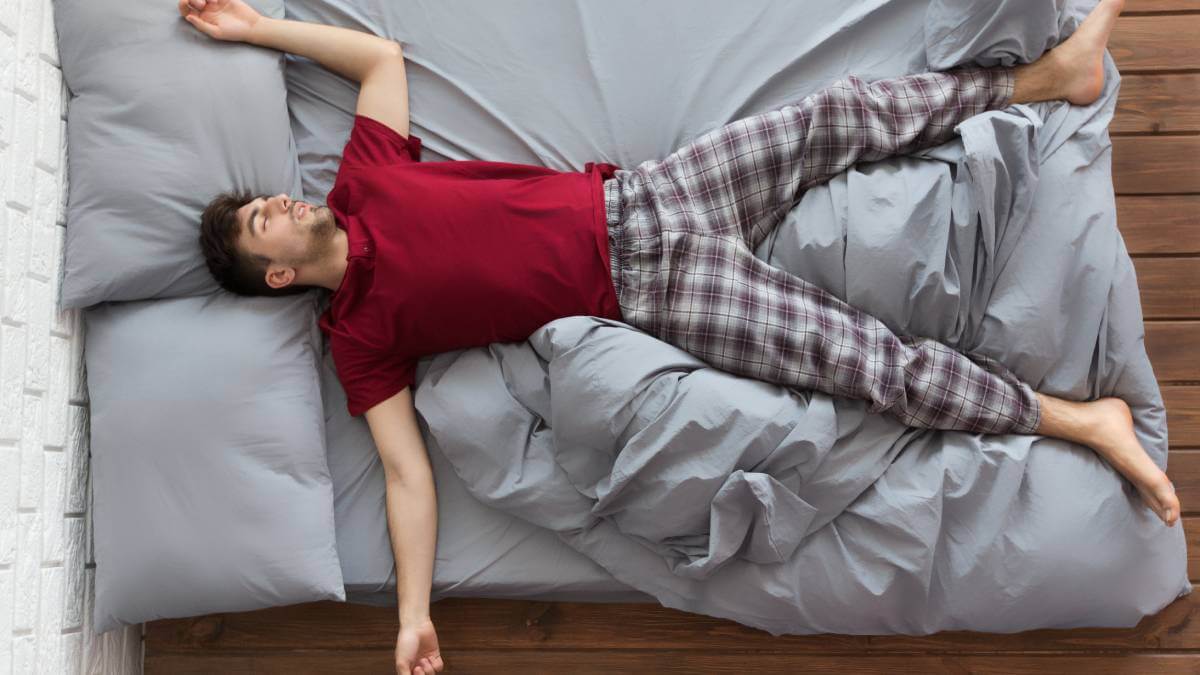We spend nearly a third of our lives in bed, yet many of us don’t think twice about our favourite sleeping position.
Once we get into a routine, few of us pay our favourite sleep positions much thought.
But naturopathic sleep doctor Catherine Darley N.D. says that the position you sleep in can not only impact the quality of your sleep, but also your overall health.
Your breathing
The position you sleep in at night can determine how easily you can breathe, and how much air you can get into your lungs. Dr Darley warns that sleeping on your back can worsen snoring or the effects of sleep apnoea because gravity works against your airways. If you have sleep apnoea or snore at night, it’s best to sleep on your side.
Your back
Getting a good night sleep can become more challenging as we get older, especially for people with bad backs. There are expensive ranges of specialised mattresses designed for people with back and spinal pain, but how you sleep may have more to do with easing or intensifying pain than what you sleep on.
“If you have spinal alignment issues or pain, you want to sleep in a position that has your spine as aligned as possible,” Dr Darley told Mind Body Green (MBG). To avoid strain, it’s important to support the natural curves of your spine, which can be difficult when sleeping in the foetal position.
“Sleeping on your back can be good and healthy, but your pillow should be really flat … so you can’t have your chin to your chest,” she told MBG. “When you’re lying on your side make sure you maybe have a pillow between your knees to keep your lower back in alignment.”
Best positions
Sleeping on your stomach is generally not recommended, especially for people with bad backs.
Having your head resting on a pillow with your stomach flat on the mattress can put strain on your neck and spine as it overarches, and having your head turned to the side can reduce blood flow and limiting airways.
According to the Sleep Foundation, the best sleep position for your health is sleeping on your side or your back to keep your spine supported and balanced. These positions relieves pressure on the spinal tissues and enables your muscles to relax and recover.
Sleeping on your side is good for:
- improving acid reflux
- people with back pain
- people who snore or have sleep apnea
- older people.
Back sleeping may be particularly beneficial for:
- people with lumbar spinal pain
- people worried about wrinkles
- people with neck pain
- people with nasal congestion.
Back sleep is not recommended for people who snore or have sleep apnea, people with some types of back pain, heavier adults and older adults
Sleeping on your back can be beneficial to spinal alignment, but can worsen acid reflux, obstructive sleep apnoea and snoring.
However, if you feel another position works better for your sleep, stick to that. You’ll only disrupt your routine if you try to ‘fix’ something that’s already working.
What is your favourite sleeping position? Do you struggle with back pain or do you snore in your sleep? Let us know in the comments section below.
Also read: Is sleeping poorly a gender issue?
Disclaimer: This article contains general information about health issues and is not advice. For health advice, consult your medical practitioner.

